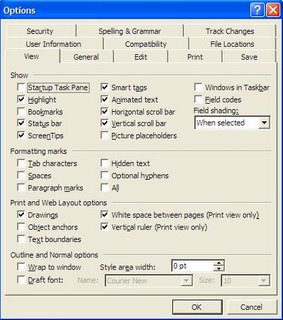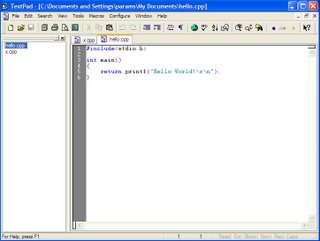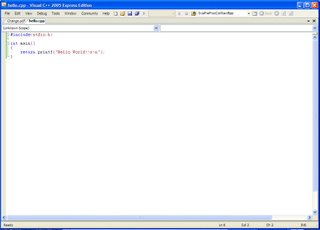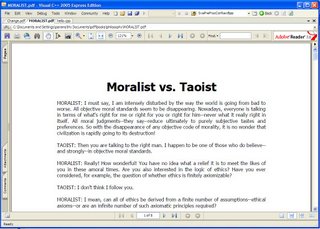Math. @ Orkut
Two days back I was visiting some communities on Orkut, and I came across the Mathematics community. I was surprised to see the number of members it had. Roughly 36000! This is much more than many other communities on Orkut. I was really excited to know that so many people on Orkut are interested in mathematics.
With a single mouse click I joined the community and found lot of interesting posts. Posts mainly consisted of some problems and puzzles, plus some doubts and clarifications. The diversity of problems in these posts is awesome. They cover a wide range of topics (algebra, number theory, calculus, geometry, and many others) and the level of mathematical skill needed to appreciate them is from a high school level to the undergraduate level.
I tried solving some problems and puzzles and it was really excited. Perhaps it rekindled the fire of mathematics in me. Thanks to all the members of the community. Especially I enjoyed clarifying the doubts of many members regarding basic algebra and calculus. Lot of people are specially confused with limits and infinity (and other such mathematical beasts).
I also posted some theoretical problems and introduced some nice topics. This community is going to keep me busy for ever. Every now and then a problem props as a post in the community and there are many which I am not able to solve. In such a case looking at the solution by others and appreciating them is also worth it. Its been two days since I joined the community and I didn't feel like visiting any other site in those two days.
And the best part of it, I made some good friends on Orkut because I was way impressed by their mathematical skills. If any one of you out there is interested in mathematics please join this community and enjoy the thrill.
With a single mouse click I joined the community and found lot of interesting posts. Posts mainly consisted of some problems and puzzles, plus some doubts and clarifications. The diversity of problems in these posts is awesome. They cover a wide range of topics (algebra, number theory, calculus, geometry, and many others) and the level of mathematical skill needed to appreciate them is from a high school level to the undergraduate level.
I tried solving some problems and puzzles and it was really excited. Perhaps it rekindled the fire of mathematics in me. Thanks to all the members of the community. Especially I enjoyed clarifying the doubts of many members regarding basic algebra and calculus. Lot of people are specially confused with limits and infinity (and other such mathematical beasts).
I also posted some theoretical problems and introduced some nice topics. This community is going to keep me busy for ever. Every now and then a problem props as a post in the community and there are many which I am not able to solve. In such a case looking at the solution by others and appreciating them is also worth it. Its been two days since I joined the community and I didn't feel like visiting any other site in those two days.
And the best part of it, I made some good friends on Orkut because I was way impressed by their mathematical skills. If any one of you out there is interested in mathematics please join this community and enjoy the thrill.





